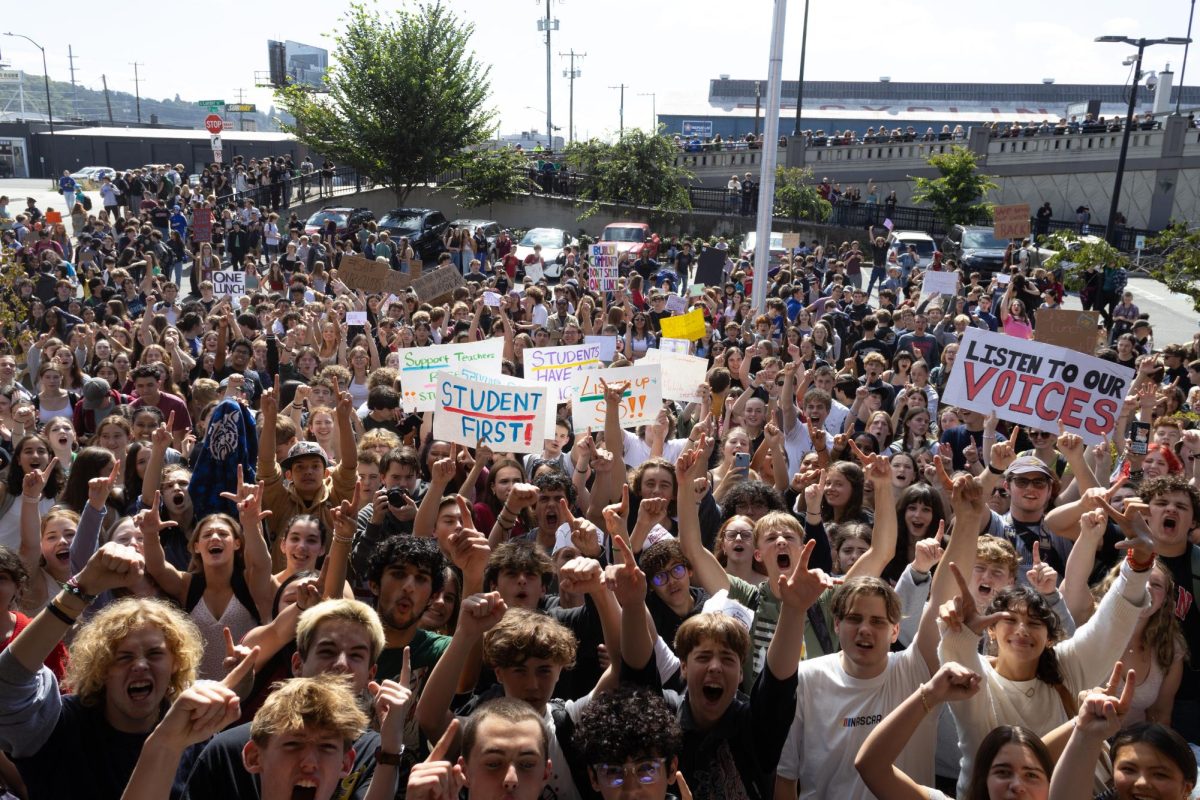When the word ‘feminism’ is mentioned –whether it be in social discourse or light conversation– its varying societal connotations often evoke mixed responses. For those with knowledge of feminist history, perhaps what comes to mind are grainy, black and white photos of the Suffragette movement; or a women’s march for a more contemporary example.
Some feel proud to refer to themselves as feminists, while others oppose the term altogether, instead opting for titles like ‘womanist’ that more specifically fight for the liberation of women of color.
Wherever one finds themselves on the spectrum of women’s activism, BHS Feminist Club welcomes all who possess a desire to further educate themselves on women’s issues and learn from each other in the process.
Through celebrating female resilience, encouraging conversation and most importantly emphasizing the participation of all genders in feminist issues, Feminist Club operates on the understanding that gender equality can only be achieved when we learn to approach discussion with open minds,.
While some question the need for feminism in a world of female Vice Presidents, the “Barbie” movie and other surface level signifiers of indisputable equity, Feminist Club co-presidents Addy Wynkoop and Taiya Fletcher find its importance more relevant than ever.
“Feminist issues carry throughout all aspects of life,” Fletcher said. “Especially in the workplace where there’s constant underestimation [of women] and a difference in wages.”
Working as a dock hand in a heavily male dominated trade has granted Fletcher a better understanding of gender-based discrimination in the workplace and empowered her to use open discussion as a means of combating it.
“The confidence that dealing with that in my job, and the resilience that I had to build, has allowed me to talk about it more comfortably in here.” Fletcher said.
Held every Thursdays during the first half of lunch in SW100, Feminist Club hosts presentations on feminist terms and topics, movie or documentary days, and typically at least one group discussion per meeting where members can voice their opinions. The goal of this process is not so much to ‘solve’ global feminist issues, but to create mutual understanding among groups of people.
“It’s like a little domino effect of inspiration where people just get talking,” Wynkoop said. “Having a conversation is way better than not having a conversation even if you say something that’s wrong.”
In addition to uplifting the experiences of its members, the club highlights the stories of those who have faced exclusion from mainstream feminism.
“We talk about the idea of ‘white feminism’ and about how people of color have often been left out of the feminist narrative,” Wynkoop said. “When we’re celebrating Women’s History Month, we really need to make sure we’re acknowledging the people that haven’t been included in that history.”
Inclusivity has been a driving force in the mission of Feminist Club. From collaborating with Positive Masculinity Club to simply encouraging students of every gender and background to share their experiences, Fletcher and Wynkoop want to establish the precedent that feminism is not just for women and girls.
“Anyone is welcome at every single one of our meetings,” Fletcher said. “We’re not here to be judgy, we’re focused on having open discussions where we can navigate uncomfortable topics.”
Existing in a time when people of all gender identities bear physical, social and psychological restraints of the patriarchy, it’s important we direct our energy to the root of this dilemma rather than its facets. We as individuals or members of a respective sex are not solely responsible for society’s flaws. And it is only when we come together, that we can recognize that truth.
“I think it’s really powerful to know that people are not alone in what they’re experiencing,” Wynkoop said.




















